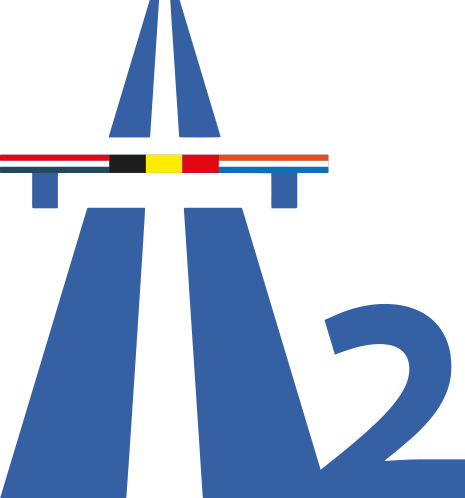DATS 24 is preparing the infrastructure for tomorrow's mobility, and is opening two new...
In order to accelerate the deployment of hydrogen refuelling infrastructure for road transportation along the Benelux transport corridors, H2Benelux is executed as part of the Connecting Europe Facility programme to significantly expand the existing public hydrogen refuelling infrastructure and hydrogen vehicle stock in the Benelux.
Colruyt Group, Total, Shell, Rijkswaterstaat and WaterstofNet form the consortium that is executing H2Benelux. H2Benelux establishes:
- 8 hydrogen refuelling stations (public, 700 bar) along the core network of the trans-European transport corridors in the Benelux
- 80 fuel cell electric vehicles that participate in a real life trial
The 8 hydrogen refuelling stations will be located in the region of:
- Amsterdam (the Netherlands): along the A10/E22. Core Network Node. Corridors: North Sea – Mediterranean/ North Sea – Baltic.
- Amsterdam Schiphol (the Netherlands): along the A4/E19. Corridors: North Sea – Mediterranean/ North Sea – Baltic.
- Utrecht (the Netherlands): along the A2/E35. Corridor: North Sea – Baltic.
- Rotterdam (the Netherlands): along the A20/E25. Core Network Node. Corridor: North Sea – Mediterranean/ North Sea – Baltic.
- Ghent (Belgium): along the A10/E40. Corridors: North Sea – Mediterranean/Rhine – Alpine
- Leuven (Belgium): along the A3/E40. Corridors: North Sea – Baltic/Rhine – Alpine
- Liège (Belgium): along the A3/E40. Corridors: North Sea – Baltic/Rhine – Alpine
- Luxembourg (Luxembourg): along the A3/A6/E25. Core Network Node. Corridor: Rhine – Alpine
These stations are:
- publicly accessible
- providing fast refuellling
- dispensing hydrogen at 700 bar
- having a daily capacity of up to 200 kg/day
- predominantly integrated on existing refuelling forecourts
- located along or in close approximation to highways
- enabling cross-border travel to Germany (e.g. Frankfurt, Cologne), France (e.g. Paris, Strassbourg) and United Kingdom (e.g. London, Leeds)
A real life trial of at least 10 fuel cell electric vehicles is performed at by each station. Participants to the real life trial represent different end user categories and provide feedback to the station operators about their experiences of using the forecourt for hydrogen refuelling, the hydrogen refuelling process and the operations of the fuel cell electric vehicle.
The data and experiences generated through the operation of hydrogen refuelling stations and fuel cell electric vehicles is used to optimise operations, refine the business case and improve the business client relations. A business plan for the further roll out of hydrogen refuelling stations and fuel cell electric vehicles in the Benelux provides further guidance towards the implementation of a denser network of hydrogen refuelling stations.
| Title | H2Benelux |
| Coordinator | WaterstofNet vzw |
| Partners |
Etablissementen Franz Colruyt nv, Total, Shell Nederland Verkoopmaatschappij B.V., Ministry of Infrastructure and Water Management – Rijkswaterstaat |
| Supervising Agency | Innovation and Networks Executive Agency |
| Budget | 17.5 M€ |
| Programme |
Connected Europe Facility – Transport (2016) |
| National co-funding | Demonstratieregeling klimaattechnologieën en -innovaties in transport (DKTI) |
| Countries | the Netherlands, Belgium, Luxembourg |
| Core network nodes | Amsterdam, Rotterdam, Luxembourg |
| Core network corridors | North Sea – Baltic/North Sea – Mediterranean/Rhine – Alpine |
| Identifier | 2016-EU-TM-0175-S |

